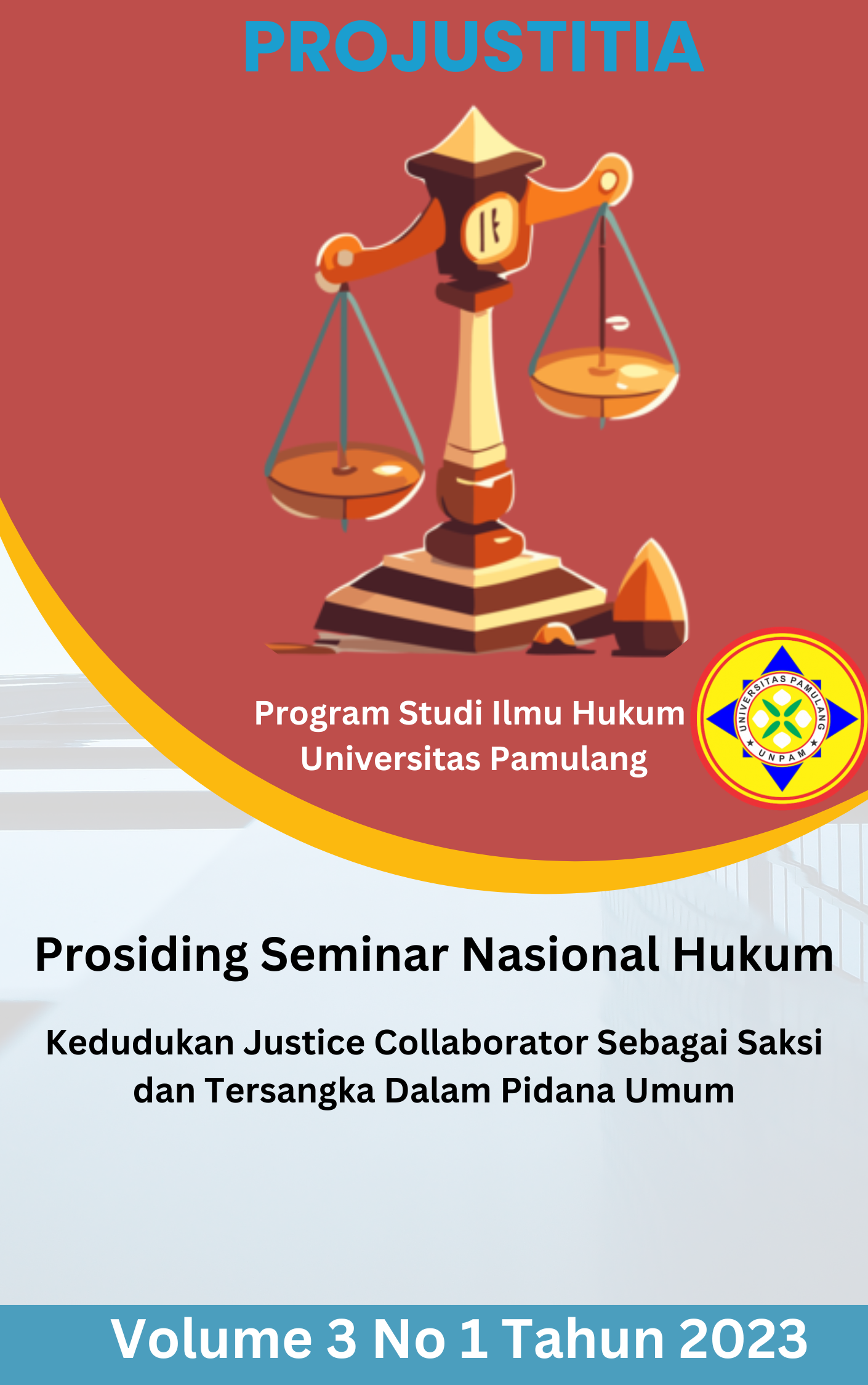PEMUTUSAN HUBUNGAN KERJA SEPIHAK BERDASARKAN UNDANG-UNDANG NOMOR 13 TAHUN 2003 TENTANG KETENAGAKERJAAN (Analisa Putusan Nomor 156 K/Pdt.Sus-PHI/2019)
Abstract
The problem of labor or labor is a problem that we often hear for developing countries, including Indonesia. One of these problems is the termination of employment by companies, as is the case with unilateral termination of employment by Indonesian companies. We hereby discuss the unilateral termination of employment based on Law Number 13 of 2003 concerning Manpower. Unilateral termination of employment is a decision made by a company without going through a legal process or the establishment of an Industrial Relations Dispute Settlement institution. Unilateral layoffs (Termination of Employment) is a very scary thing for workers because only with a letter of termination of employment (Termination of Employment) issued by a company, all workers' rights from salary / wages to social security will be lost, even though termination of employment unilateral employment relationship without any stipulation from the Employment Settlement agency will be null and void, meaning that legally the layoff (Termination of Employment) is deemed to have not occurred according to the provisions of article 155 paragraph (1) of the Manpower Act. In an employment relationship agreement there must be an agreement between the employer and the worker, the work agreement must meet the elements of the work agreement so that the termination of the employment relationship cannot be done unilaterally because there is no written work agreement by both parties. To anticipate the arbitrariness of the company that harms the workers, the law emphasizes making a written agreement. Termination of employment is considered to exist if the agreement of both parties to make an agreement is otherwise. The dispute started from negligence at work solely due to his unprofessionalism in carrying out his duties and there was no interest or benefit for his negligence, where the plaintiff was an employee at a company who was then dismissed (Termination of Employment) unilaterally by the Sahabat Mitra Savings and Loans Cooperative. Indeed, the so-called defendant is a company that terminates the employment relationship unilaterally to the plaintiff. In this case the author examines which shows that the Supreme Court Decision Number 156 K/Pdt. Sus-PHI/2019 is not much different and gives power to the First Level Decision Number 48/Pdt. Sus-PHI/2018 PN Pbr., That the termination mechanism carried out by the Sahabat Mitra Sejati Savings and Loan Cooperative seems unfair to the victims of layoffs. And in the decision Number 156 K/Pdt.Sus-PHI/2019, the Panel of Judges in their consideration is fair enough in providing legal protection to laid-off workers, to fulfill workers' rights compensation which should have been received in accordance with Law Number 13 of 2003 About Employment. The approach method used in this research is the normative juridical method, namely legal research carried out by examining library materials or secondary data in the form of secondary materials by understanding law as a set of regulations or positive norms in the legal system that regulates problems in research.
Keywords : Layoffs, Employment, One-sided.


